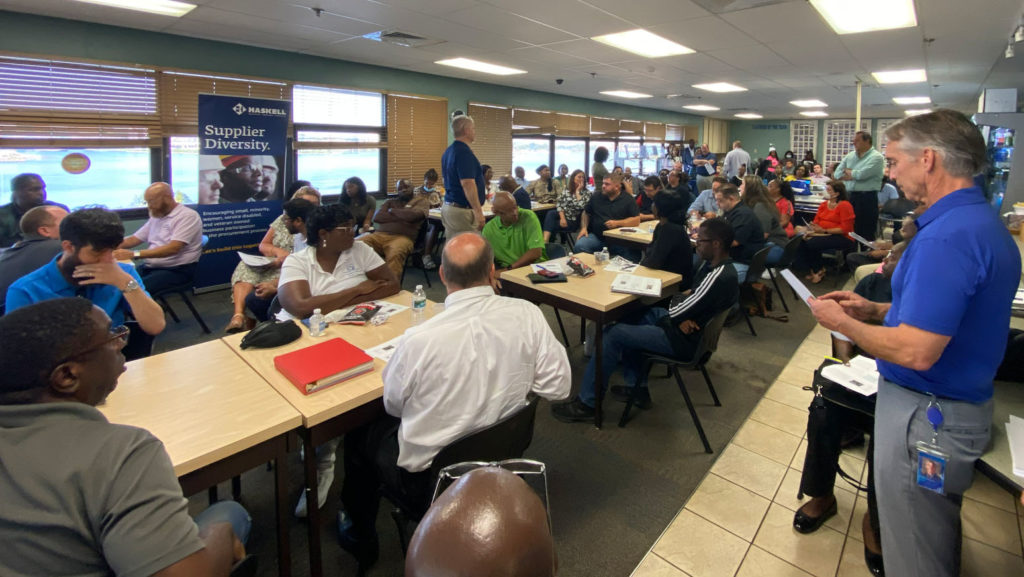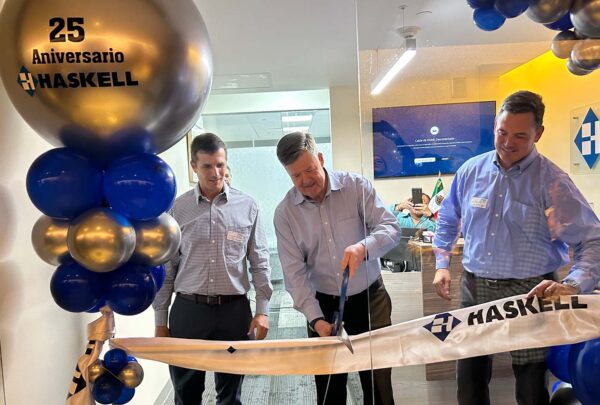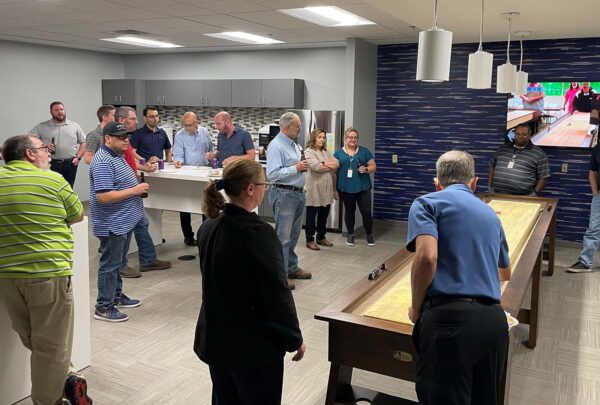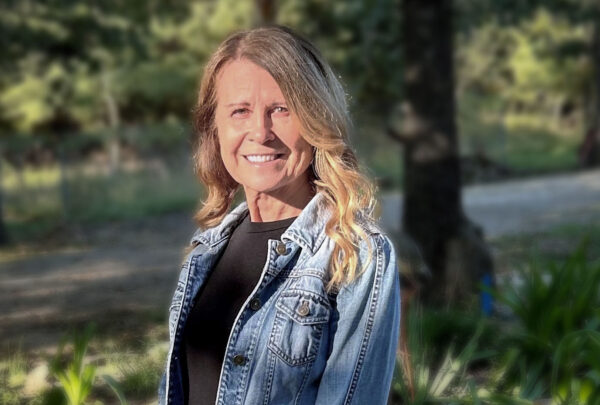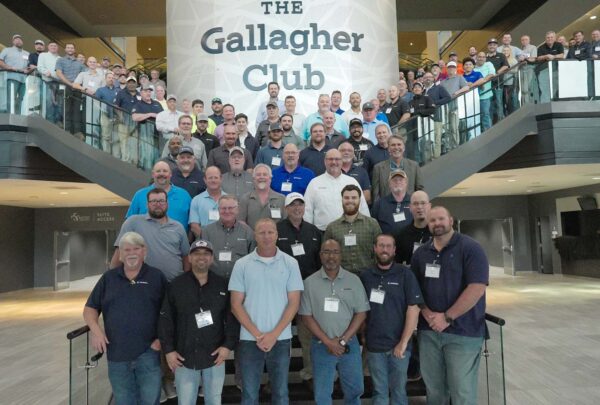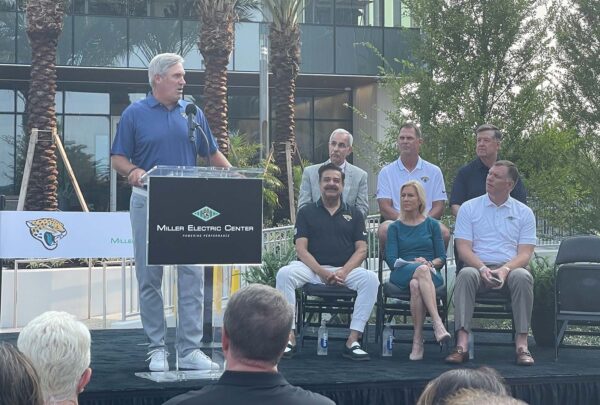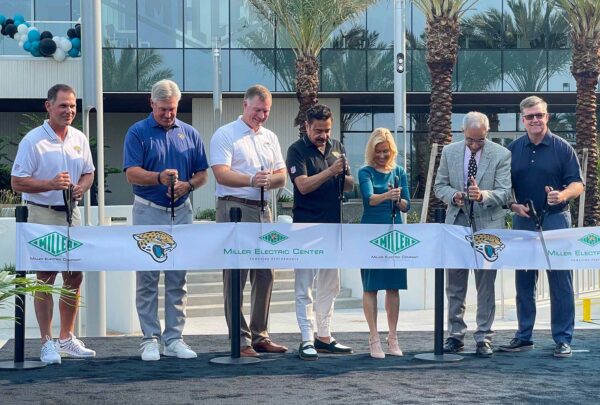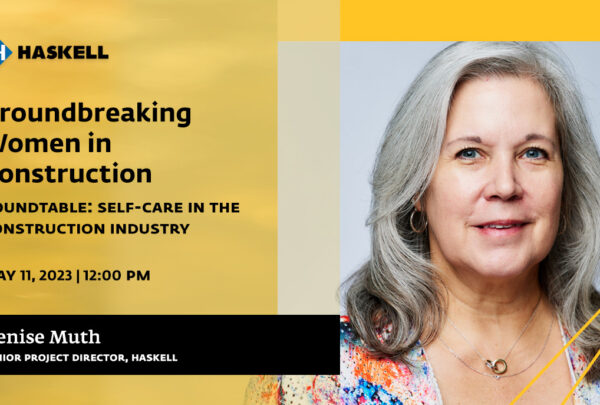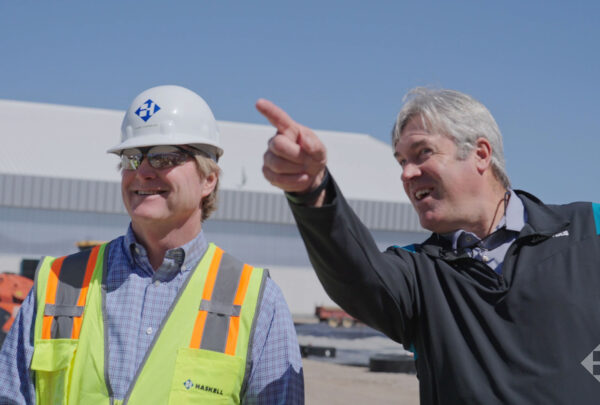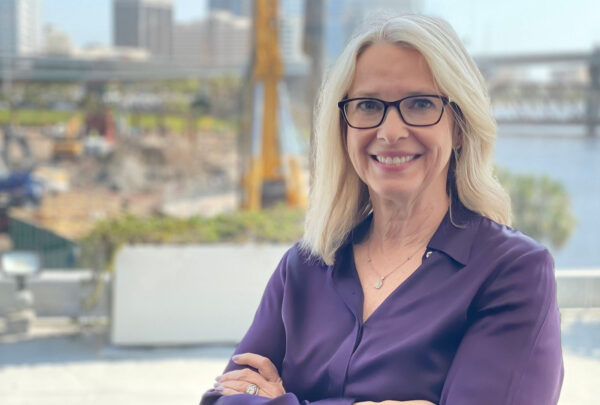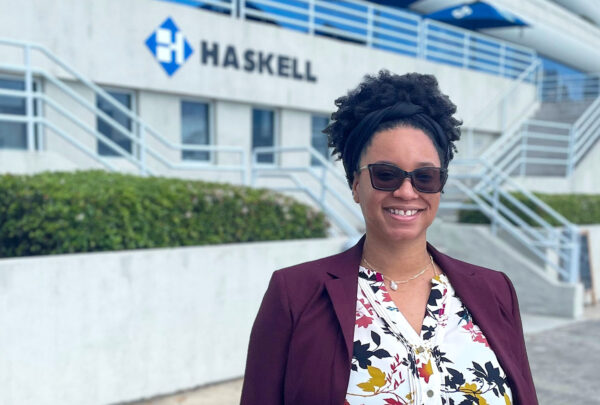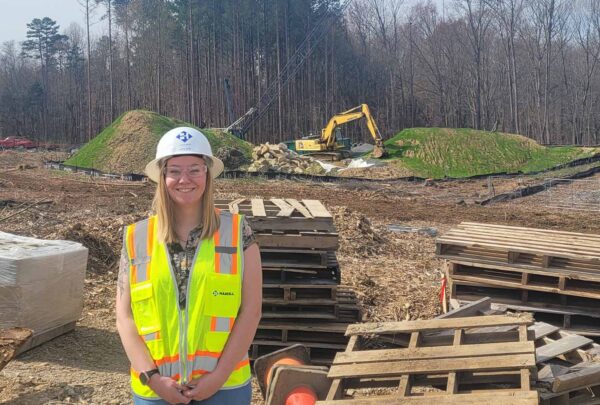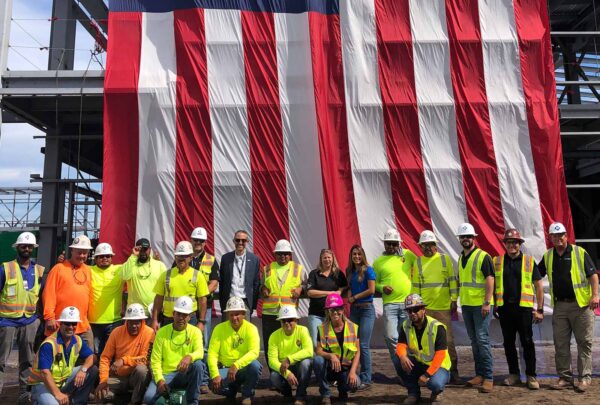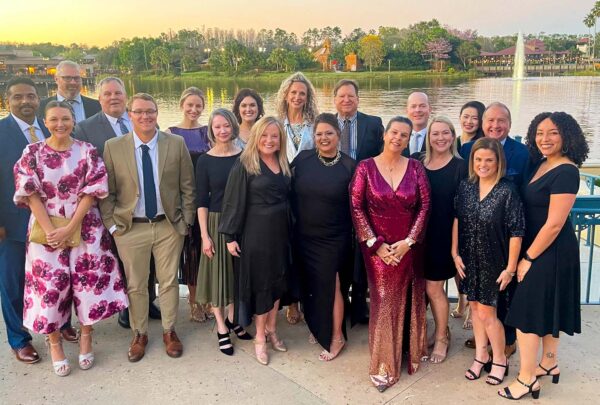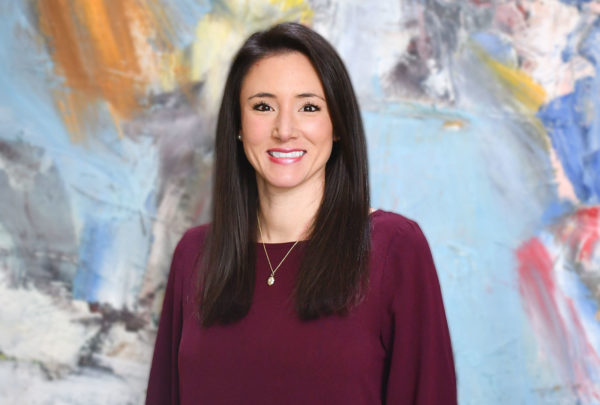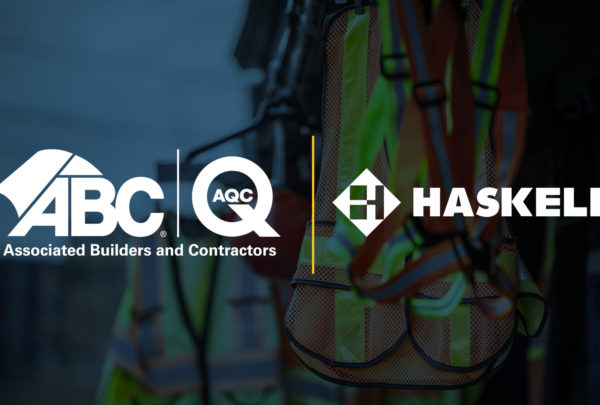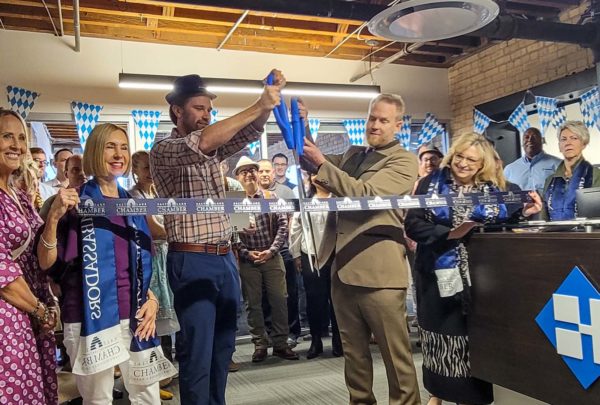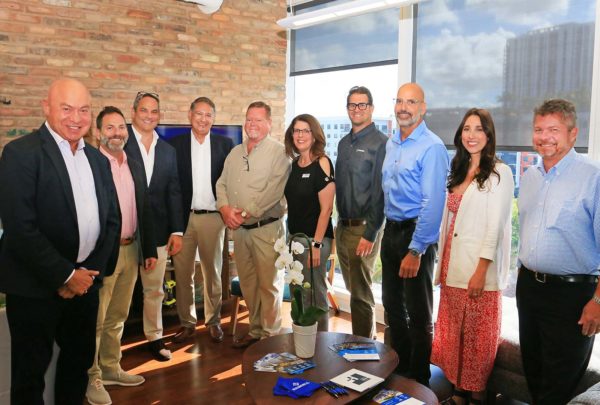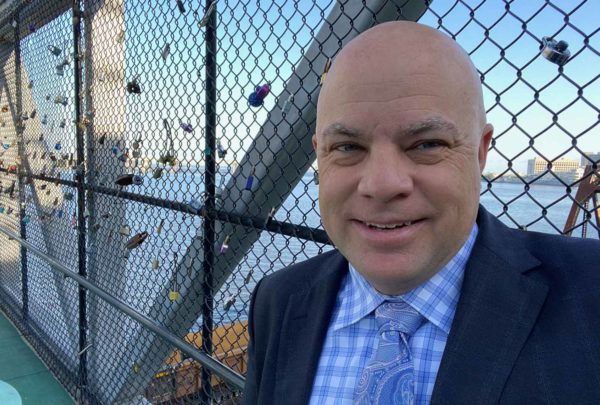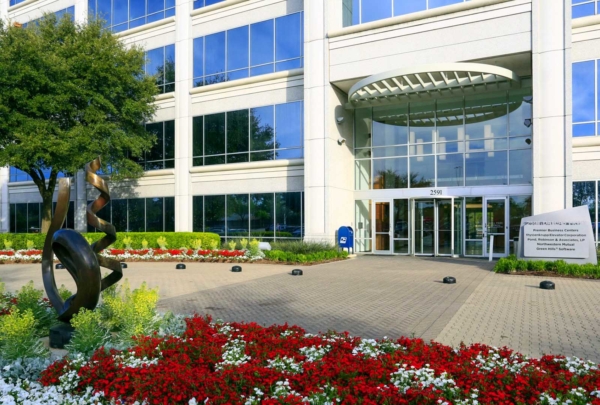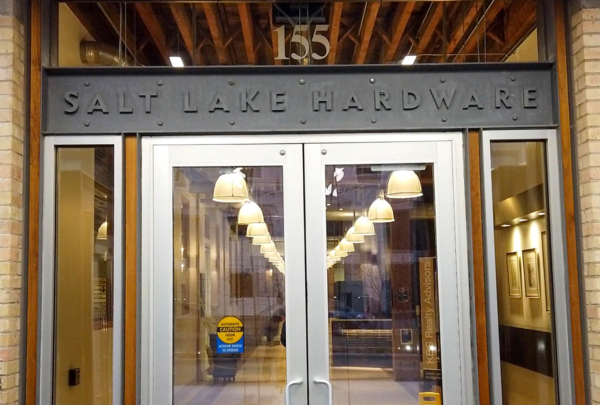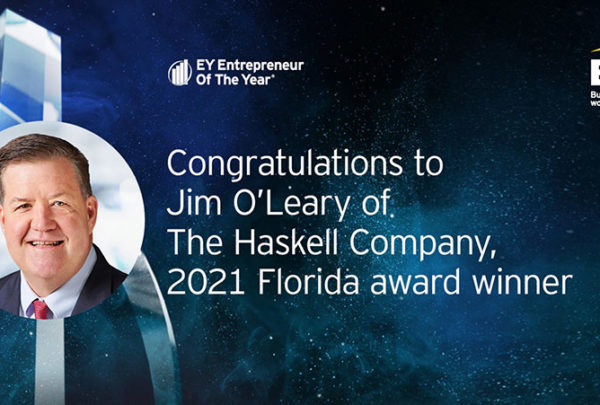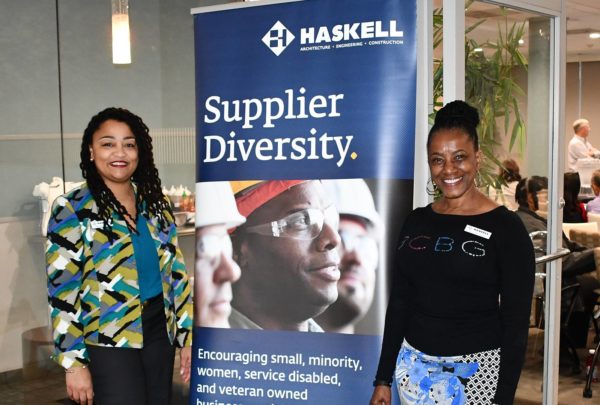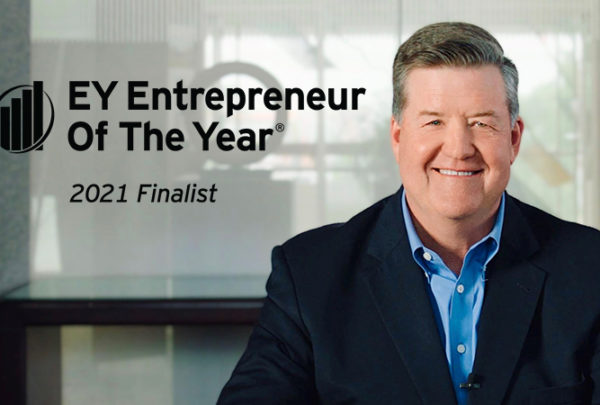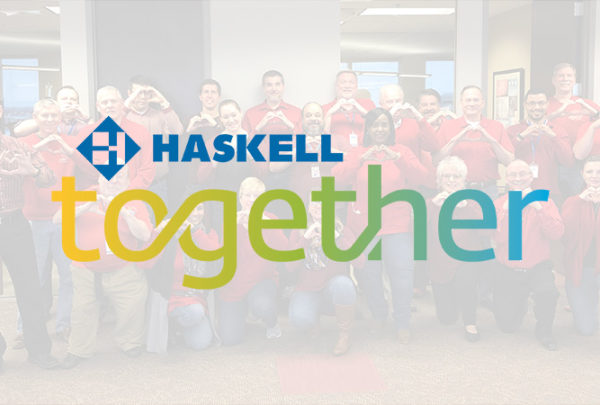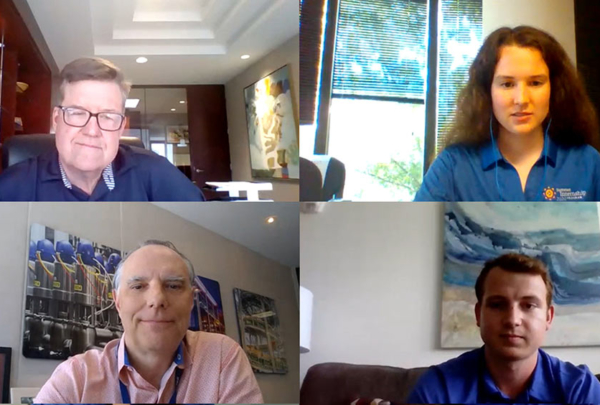“Expand Diversity and Inclusion” is one of six strategic pillars that make up Haskell 2025, the company’s current roadmap for purposeful growth, and Haskell has a long and rich history of doing just that through its work with subcontract partners.
From the company’s earliest days, founder Preston Haskell III insisted that 15 to 20 percent of the company’s business be conducted with small businesses, including and often focusing on Disadvantaged Business Enterprises (DBEs). He imparted that dedication to longtime Business Diversity Coordinator Robin Waddell.
Now retired, Waddell was instrumental in driving millions of dollars to diverse small businesses over her 20-year career and became an icon in the Haskell and Jacksonville, Florida, small-business communities. She frequently served as a panelist on small business hiring practices at Department of Defense workshops nationally and provided free public seminars in and around Jacksonville, the company’s global headquarters.
“Robin carved her own path and our effort in helping small businesses,” said Teri Williams, who succeeded Waddell in 2016 as Haskell’s Business Diversity Manager and who herself was honored in 2019 with the Society of American Military Engineers’ Small Business Advocate Award. “We have all of the tools for engaging with and explaining the process that we need to work with small businesses.”
Haskell’s Procurement and Contracting team focuses on ensuring that all vendors are qualified for each project using vendor prequalification industry standards, which are quite detailed. Whether the project is federally funded or conducted privately or locally, all vendor business classifications are verified using Small Business Administration (SBA) size standards for client and regulatory reporting.
DBEs are defined as for-profit small business concerns where socially and economically disadvantaged individuals own at least a 51% interest and also control management and daily business operations.
Rochelle Stoddard, the President of Berman Brothers in Jacksonville, has experienced this relationship. As the third-generation female owner of the largest family-owned and operated metal service center, scrap metal recycling facility, custom metal manufacturer and fabricator in the Southeast, she values the work done with a larger company.
A recent partnership included custom metal work for Haskell’s design and delivery of a confidential fast-food client’s regional manufacturing and distribution center on the U.S. West Coast. Stoddard said she appreciated the ongoing educational experiences Haskell offers, including Jacksonville Chamber of Commerce gatherings for women-owned small businesses on how to conduct business with the company and invitations to a potential job site to learn more about the process even though Berman Brothers’ business doesn’t include installation.
“It’s enormous,” Stoddard said. “Small businesses help to feed people in our local community. To have Haskell, as such a large entity, support local businesses can only be beneficial to us all. Unfortunately, no longer are we in the days where a purchasing agent is loyal to a relationship based on service and quality. Usually, it’s just, ‘What’s the price?’ But it’s the relationships that Haskell values, and that’s been encouraging.”
Another small business partner, SBH Group of Jacksonville, has worked with Haskell on the Baptist Health hospital project in nearby Clay County. The long-term contract for cleaning during various stages of construction has created positive word of mouth, according to Kathy Fowler, the SBH Group Senior Vice President.
“There is a lot of work in the vendor application process and maintaining your quality,” Fowler said. “You really have to display a tremendous work ethic. When Haskell, such a big company, works with you, the positive reviews pass pretty quickly. The Haskell work led to another construction group in Gainesville rewarding us a contract. The referral business is phenomenal.”
The nation’s aging workforce is creating a shortage of skilled labor across the construction industry but is felt especially acutely among small and minority-owned subcontractors., Williams said. Access to and adoption of new and changing technologies is also a challenge.
She and her team see a continuing need for extensive training beyond the DBE certification, particularly in terms of grasping the breadth of large projects and understanding the value of estimating. Haskell has made significant inroads in providing free training opportunities within the Jacksonville community and beyond, both at Haskell’s headquarters and at public facilities and construction sites.
On a recent project to rehabilitate two water reclamation facilities for the Macon (Georgia) Water Authority, Haskell performed a safety mentoring session and had its estimating team demonstrate for vendors conceptual estimating, how to list exceptions and give reasonable and qualified estimates. Also, Haskell team members trained two specific local firms so that MWA could rely on them for future work.
Mentoring DBE subcontractors to expand their skillsets is a Haskell priority, and Williams said she believed it should be a focus of the smaller firms and their supporting agencies.
“A lot of small businesses in the construction industry lack the capacity to perform as a prime business,” Williams said. “They don’t often get exposed to every step in the process. On many occasions, working with a prime contractor like Haskell allows small businesses to build capacity, understand safety expectations and gain knowledge. The need to be prepared ahead of time is essential. The goal is that they won’t be small anymore after working with Haskell for a while.”
As Nicole Pearson, a Haskell Business Diversity Administrator, said: “It’s rewarding to see the growth of a small business when working with us. That makes it worthwhile.”
Haskell strives to provide an inclusive environment to do business with small, minority-owned, women-owned and veteran-owned businesses. Contact us for more information or to join us as a subcontractor or vendor partner.
